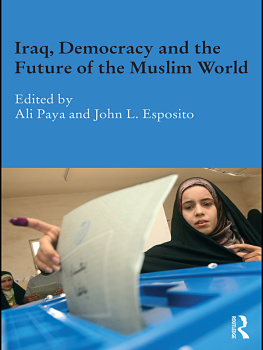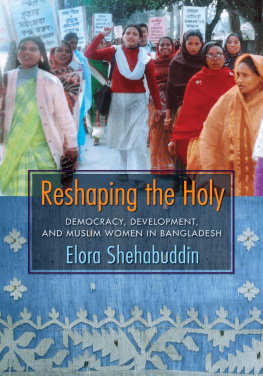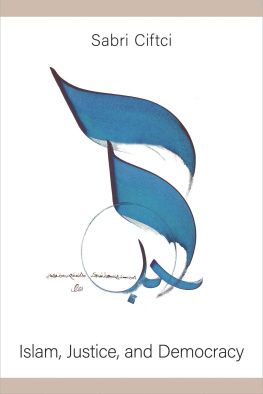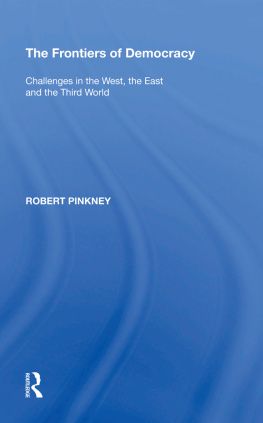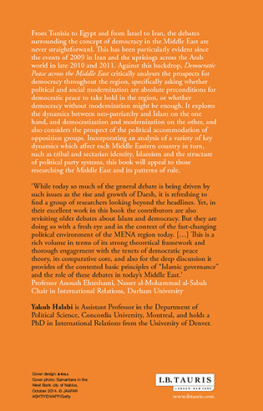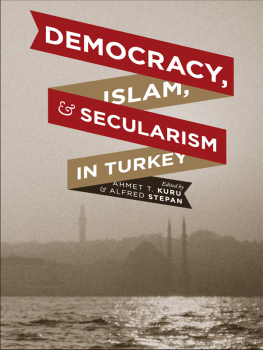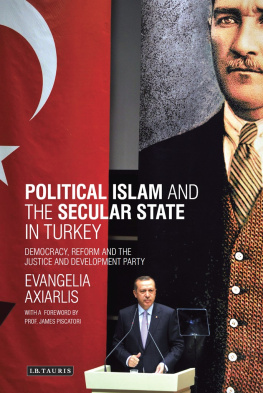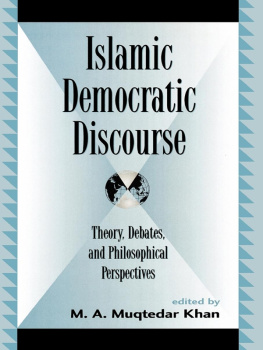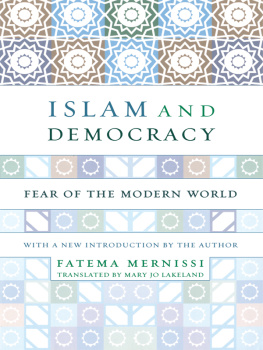Iraq, Democracy and the Future of the Muslim World
Iraq, democracy and Islam are powerful global forces which shape not only many aspects of the lives of Muslims, but the lives of other citizens of the world as well. This book explores many of the challenging questions posed by the interconnections between these three forces, concentrating on issues which have global significance and which have been less studied up until now. It contains contributions from many of the leading thinkers and academics from this subject area, including the former President of Iran, Seyyed Mohammad Khatami.
Topics such as the compatibility of Islam and democracy, and the question of whether democracy can be encouraged in the Middle East are looked at carefully. Contributors evaluate the circumstances under which democracy can be imposed by outside force, and ask what forces are driving the confrontation between the West and Islam, before looking at how this confrontation is likely to develop.
This book presents a comprehensive picture of dynamic change in the geopolitics of our time, and offers a timely contribution to research on Middle East Politics and Islamic Studies.
Ali Paya is Senior Visiting Research Fellow at the Centre for the Study of Democracy, School of Social Sciences, Humanities and Languages at the University of Westminster, UK, and Associate Professor of Philosophy at the National Research Institute for Science Policy in Iran.
John L. Esposito is Professor of Religion and International Affairs and of Islamic Studies at Georgetown University, USA, and Founding Director of the Center for Muslim-Christian Understanding: History and International Affairs in the Walsh School of Foreign Services.
Durham Modern Middle East and Islamic World Series
Series Editor: Anoushiravan Ehteshami, University of Durham
1. Economic Development in Saudi Arabia
Rodney Wilson, with Abdullah Al-Salamah, Monica Malik and Ahmed Al-Rajhi
2. Islam Encountering Globalisation
Edited by Ali Mohammadi
3. Chinas Relations with Arabia and the Gulf, 194999
Mohamed Bin Huwaidin
4. Good Governance in the Middle East Oil Monarchies
Edited by Tom Pierre Najem and Martin Hetherington
5. The Middle Easts Relations with Asia and Russia
Edited by Hannah Carter and Anoushiravan Ehteshami
6. Israeli Politics and the Middle East Peace Process, 19882002
Hassan A. Barari
7. The Communist Movement in the Arab World
Tareq Y. Ismael
8. Oman The Islamic Democratic Tradition
Hussein Ghubash
9. The Secret Israeli-Palestinian Negotiations in Oslo
Their success and why the process ultimately failed
Sven Behrendt
10. Globalization and Geopolitics in the Middle East
Old games, new rules
Anoushiravan Ehteshami
11. Iran-Europe Relations
Challenges and opportunities
Seyyed Hossein Mousavian
12. Islands and International Politics in the Persian Gulf
The Abu Musa and Tunbs in strategic perspective
Kourosh Ahmadi
13. Monetary Union in the Gulf
Prospects for a single currency in the Arabian peninsula
Emilie Rutledge
14. Contested Sudan
The political economy of war and reconstruction
Ibrahim Elnur
15. Palestinian Politics and Middle East Peace Process
Consensus and competition in the Palestinian Negotiation Team
Ghassan Khatib
16. Islam in the Eyes of the West
Images and realities in an age of terror
Edited by Tareq Y. Ismael and Andrew Rippin
17. Islamist Extremism in Kuwait
From the Muslim Brotherhood to Al-Qaeda and other Islamist political groups
Falah Abdullah al-Mdaires
18. Iraq, Democracy and the Future of the Muslim World
Edited by Ali Paya and John L. Esposito
Iraq, Democracy and the Future of the Muslim World
Edited by
Ali Paya and John L. Esposito

LONDON AND NEW YORK
First published 2011
by Routledge
2 Park Square, Milton Park, Abingdon, Oxon OX14 4RN
Simultaneously published in the USA and Canada
by Routledge
270 Madison Ave, New York, NY 10016
Routledge is an imprint of the Taylor & Francis Group, an informa business
This edition published in the Taylor & Francis e-Library, 2010.
To purchase your own copy of this or any of Taylor & Francis or Routledges collection of thousands of eBooks please go to www.eBookstore.tandf.co.uk.
2011 Editorial selection and matter, Ali Paya and John L. Esposito.
Individual chapters, the contributors.
All rights reserved. No part of this book may be reprinted or reproduced orutilised in any form or by any electronic, mechanical, or other means, now known or hereafter invented, including photocopying and recording, or in any information storage or retrieval system, without permission in writing from the publishers.
British Library Cataloguing in Publication Data
A catalogue record for this book is available from the British Library
Library of Congress Cataloging in Publication Data
Paya, Ali.
Iraq, democracy and the future of the muslim world / Ali Paya and
John Esposito.
p. cm. (Durham modern Middle East and Islamic world series ; v.18.)
Includes bibliographical references and index.
1. DemocratizationIraq. 2. MuslimsIraqPolitics and government.
3. Islam and politicsIraq. 4. Islam and cultureIraq. 5. IraqPolitics
and government. I. Esposito, John. II. Title.
JQ1849.A1P39 2010
320.9567dc22 2009052929
ISBN 0-203-84880-2 Master e-book ISBN
ISBN 978-0-415-58228-5 (hbk)
ISBN 978-0-203-84880-7(ebk)
Contents
ALI PAYA AND JOHN L. ESPOSITO
|
FALEH A. JABAR
|
LAITH KUBBA
|
SALAH AZIZ
|
ABBAS KADHIM
|
JOHN KEANE
|
ALI PAYA
|
BHIKHU PAREKH
|
BEVERLEY MILTON-EDWARDS
|
S. M. KHATAMI
|
JOHN L. ESPOSITO
|
ABDELWAHAB EL-AFFENDI
|
MOHAMMAD SAMIEI
|
ABDUL AZIZ SACHEDINA
|
Contributors
Salah Aziz is an academic and civil society activist. Born in Kurdistan, Iraq, he obtained a bachelors degree from Baghdad University, a masters and a PhD from Indiana University at Bloomington, Indiana, specializing in nuclear physics. He was a professor of physics at Florida A&M University and the Coordinator of Academic Programs at FAMU-FSU College of Engineering. He was awarded a Fulbright Scholarship in 20062007 and became an IDEAL scholar in 2008. He has been active in promoting Kurdish studies in the United States and Civic Education in Kurdistan, Iraq. Since 1991 he has set up several non-government organizations and centres in Kurdistan, Iraq. He has authored and translated (into Kurdish) over 15 books and has published many articles on issues such as human rights, democracy, and peace and tolerance.

